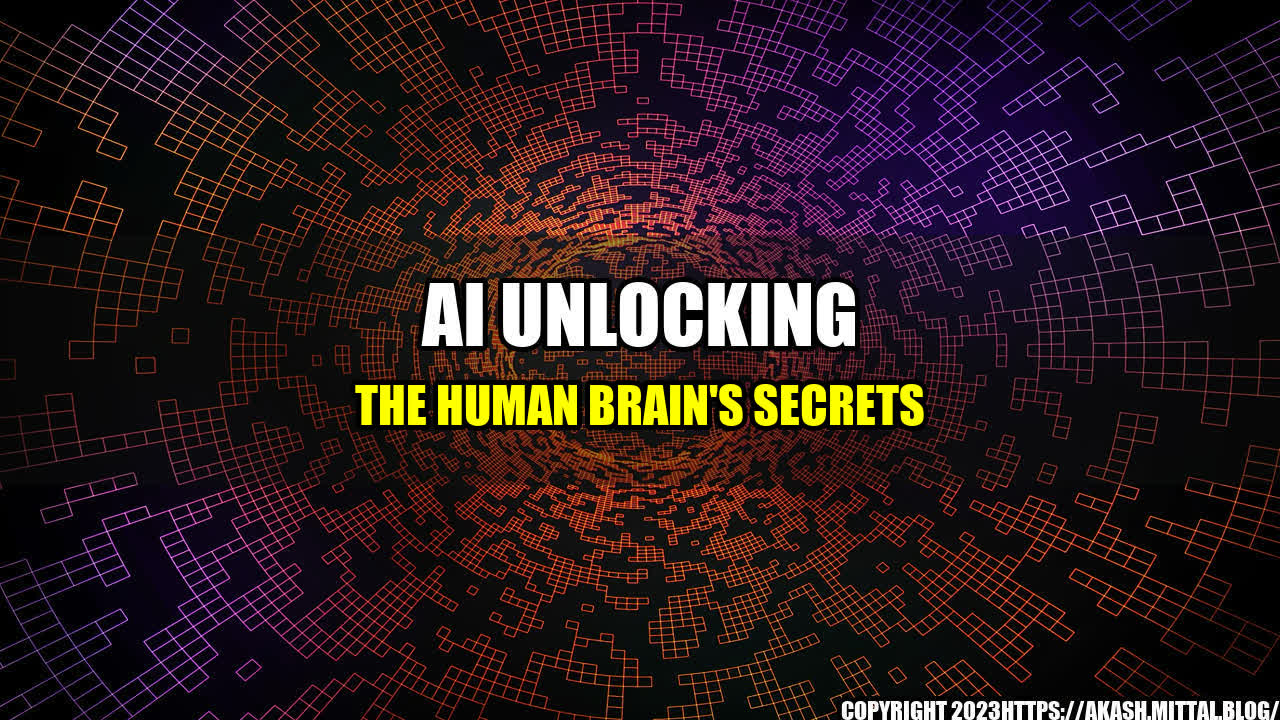
As a teenager, John was a brilliant student who excelled in academics, sports, and extracurricular activities. Then, one day, he suffered a traumatic brain injury in a car accident that left him paralyzed and unable to speak. His doctors told his parents that he had little chance of recovering, but they refused to give up hope.
John's parents heard about a new technology called neuroprosthetics that uses artificial intelligence (AI) to help people with severe brain injuries communicate and control their limbs. They immediately enrolled John in a clinical trial, and after a few months of intensive therapy, he was able to move his arm and say his first word.
This is just one example of how AI is changing the way we understand and treat the human brain. Researchers around the world are using machine learning algorithms and neural networks to analyze vast amounts of data and uncover the secrets of neuroscience.
One of the most promising applications of AI in neuroscience is in the field of brain-computer interfaces (BCIs). BCIs allow people to control computers, prosthetic limbs, and other devices using only their thoughts. This technology has the potential to revolutionize the lives of people with disabilities and injuries.
Thanks to advances in machine learning, BCIs are becoming more accurate and reliable. In a recent study, researchers used a deep learning algorithm to decode the neural activity of monkeys as they performed a task. The algorithm was able to predict the monkeys' actions with 97% accuracy.
Another area where AI is making a big impact is in the study of brain diseases and disorders. Researchers are using machine learning to analyze brain scans and identify patterns that could indicate the early stages of diseases like Alzheimer's, Parkinson's, and multiple sclerosis.
In a study published in the journal Nature, researchers used a deep learning algorithm to analyze thousands of brain scans from people with Alzheimer's and healthy controls. The algorithm was able to identify subtle differences in brain activity that could predict which individuals would develop the disease with 86% accuracy.
In conclusion, AI is unlocking the secrets of the human brain and revolutionizing the field of neuroscience. Here are three key takeaways:
If you or someone you know is struggling with a brain injury or disorder, consider exploring the latest AI-assisted therapies and treatments. With advances in machine learning and neural networks, there has never been a better time to unlock the secrets of the human brain.
References:
Hashtags:
Curated by Team Akash.Mittal.Blog
Share on Twitter Share on LinkedIn